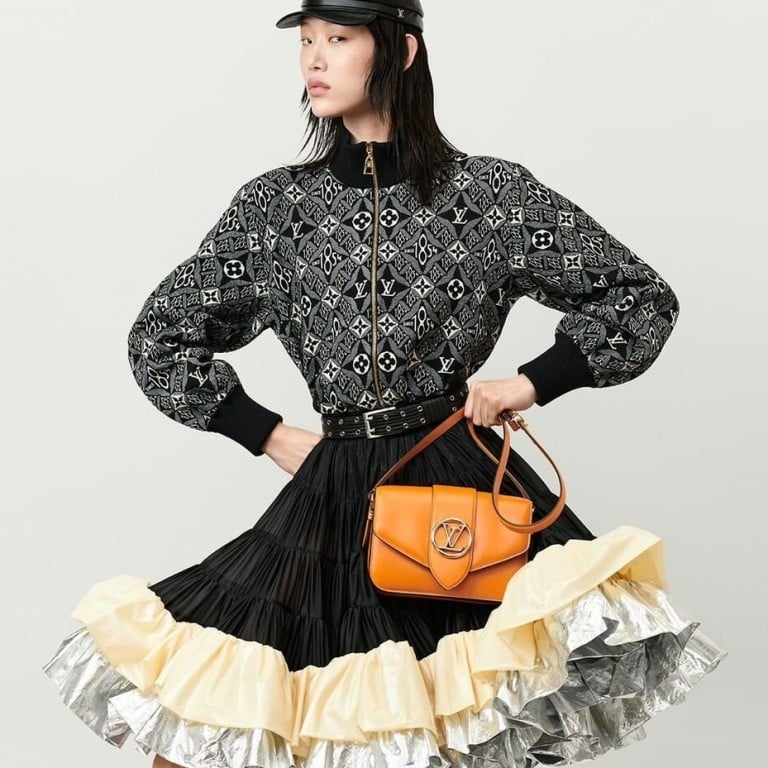/ Is glamour dead? Never – post-pandemic power dressing is inevitable, and luxury brands need to make us dream again

This article is part of STYLE’s Inside Luxury column.
Since I published my research results on what motivates people to buy luxury and what creates the perception of value, about a decade ago, I have heard numerous times that the end of luxury is near. In 2008, at the peak of the last recession, many so-called experts were convinced that from that point on, luxury would be stealth, anything flashy would not sell, and logos would disappear.
AW20 trends: 4 ways fashion brands have responded to the ‘new normal’
How luxury brands are breaking back into China post-pandemic
We are merely living in a time of disruption, change, and the transition to new habits. What would normally have taken a decade – integrating more digital tools into our lives – happened during weeks and months. While everyone was busy adjusting to lockdowns and to working, schooling, shopping and exercising from home, all supported by screens and apps, many of us did not spend too much effort on how we could best dress for success.
Chanel’s Paris Fashion Week show returned to classic glamour
This is already changing. The power dress won’t go away, it will further adapt, and become even more important. In my research I was able to show across five countries (USA, China, Japan, France, and Germany) that, among reasons why luxury is so valuable to people was the anticipation of significantly enhanced attractiveness, greater self-esteem, feeling more protected and secure, and the joy of experiencing an ultimate treat. In other words, luxury makes us – in our expectations – more successful because we feel more beautiful, more desired, and have a stronger presence.
These fundamental insights and needs will not go away. To the contrary, as screens separate us, we will feel an even stronger desire to take up power dressing. While we can expect a more practical approach to it – such as more emphasis on comfort and wearability – the limited visibility our clothes and accessories have will only boost the emphasis on statement pieces.
Why digitisation is a must for luxury fashion brands
This is a huge opportunity for jewellery, watch and fashion brands, to name just a few luxury categories. To make an impact, in some cases less discretion is needed – and we can expect earrings, rings, bracelets, handbags and wrist watches to become much more critical in making an impression. Dressing up and being lavish, rather than dressing down and muting.
Expect logos and brand patterns to become more of an emphasis once again, and clothes to be designed to enhance the presence, and make you feel better – be it in front of your laptop on a Zoom call, on your phone on FaceTime, or in person.
Will the luxury sector lead the economic rebound out of Covid-19?
The pandemic has also taught us the value of interpersonal encounters, things we simply took for granted in the past. This will further give people a reason to dress up, show their best, and dress not only to impress, but simply to make themselves and others feel good.
In a recent conversation with Megan Quinn, the founder of Net-a-Porter, she told me that one of her best sales days was the afternoon of September 11. People were ordering beautiful dresses and luxury accessories to bring some normality back in to their lives after going through trauma in the aftermath of the attacks.
In this respect, many luxury brands are doing everything wrong during the pandemic. I have seen countless examples of brands focusing on price promotions in recent months, scaled back advertising, transactional experiences, outlet malls – and growing more timid in their creative expression.
STYLE Edit: Gucci’s tongue-in-cheek Fake/Not collection
Brands that play it safe and wait for the pandemic to end will have a catastrophic awakening. On the other hand, the brands that make us dream with relevant content, inspiring storytelling and creative expression; brands that allow us to feel more powerful, will thrive. The era of power dressing has just begun.
Want more stories like this? Sign up here. Follow STYLE on Facebook, Instagram, YouTube and Twitter .

Did Covid-19 kill fashion as we know it? Not really: from Rolex watches to Dior dresses and Fenty heels, luxury is what everyone wants after long months spent at home in sweatpants, whether on Zoom or IRL – here’s why